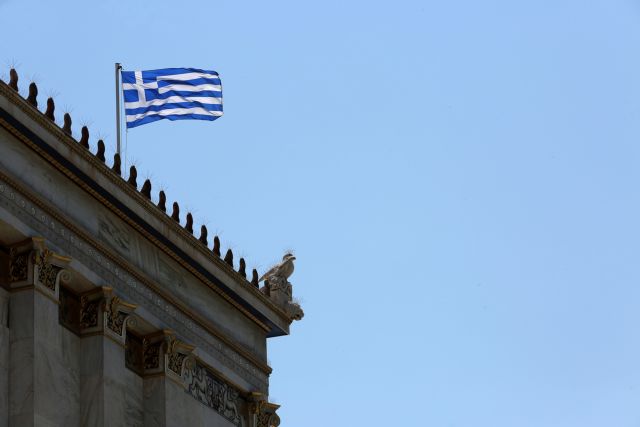
The Greek economy surprised even the most optimistic pundits with its performance during the 1st half of 2022, despite the escalation of energy and inflationary challenges. Indications for the 3rd quarter of the year remain strong, mainly due to the increased boost from tourism. The annual growth rate of the Greek economy will significantly exceed initial expectations rising to 5.5%-6.0% – among the top in the Eurozone for the 2nd consecutive year – even if we assume a significant deterioration in the 4th quarter.
Undoubtedly, attention now turns to the rest of the year and 2023 as a whole. Growing concerns about a difficult winter energy-wise are creating new challenges for European businesses and households. Additionally, in an environment characterized by increased financial volatility, central banks are under pressure for faster rate hikes due to continued inflationary divergences. However, I am hopeful that despite heightened uncertainty, key factors that ensured the Greek economy outperformed in 2021-22 will continue to raise defenses and support its medium-term momentum.
Specifically:
Fiscal measures – which exceed €13 billion for 2022 after the announcements at the Thessaloniki International Fair and are enhanced with new targeted interventions for 2023 – provide a high degree of support to households and businesses and prevent a weakening of confidence. For households in particular, annual aid in 2022 will approach €7 billion. This amount corresponds to almost 6% of disposable income and covers almost 50% of the estimated losses due to inflation. This development alone improves the starting point for 2023.
The labor market confirmed its momentum with a notable increase in employment by 200,000 workers in 6 months. The first signs of wage adjustments – driven by an increase in the basic wage – will strengthen in 2023. Total labor income of workers increased by 7.8% in 6 months and combined with the fiscal stimulus offset the impact of inflation on purchasing power, as evidenced by the explosive growth of private consumption by 11.4% at constant prices over the same period.
Tourism and the channeling of demand and stagnant purchasing power towards services in general, gave further impetus to the performance of the economy. Tourism receipts are heading for a new historic high, through a jump in arrivals but also strong appreciations of 15%-20% of quality tourist services. 2023 also looks strong, with strong interest in pre-bookings and new deals with higher price consolidation.
More generally, export dynamics are proving resilient to successive crises, bringing exports of goods and services to new highs. Despite the apparent weakening of key markets for Greek products, the nature of the country’s exports – comprising comparatively more basic goods – provides additional protection against the coming deterioration in the international environment.
In the energy field, although the direct energy dependence of the Greek economy on Russia is relatively small, the challenges remain significant. The dramatic gas price hikes in 2022 and forecasts for record high prices in 2023 as well – possibly entailing a complete stoppage of natural gas flows to the EU – and with the risk of contagion of the crisis to oil in the coming months remaining high, portend that it will be a difficult winter. But I believe that significant preparations and contingency planning are already underway that will limit the impact and put us in a better position come spring energy, possibly sooner than we expect. At the same time, incentives are given for savings, with the first reductions in natural gas consumption in Greece being visible from the end of the 2nd quarter.
In addition to the above developments, I would like to highlight some additional key catalysts that support the economy and limit risks to the banking system:
i. After a prolonged period of restructuring, the Greek economy is in a very different phase of the economic cycle. This has led to fewer and more resilient business units, frugal strategies and restructuring. Having forged defensive features through long trials, the healthy part of the economy is more resilient to temporary shocks than our partners.
ii. Collateral values – mainly real estate – are still undervalued, after prices fell by 60% during the financial crisis. Increased manufacturing costs and reduced supply limit downside risks.
iii. Corporate and household leverage is quite low compared to other EU member states, while after the impairment of bad loans the overwhelming proportion of sound loans is related to strong customers. At the same time, the risk of regular or strategic defaults decreases, due to the maturation of the institutional framework and higher valuations of pledges compared to the past.
Strong nominal GDP growth of around 13% in 2022 takes it to the highest level since 2011 and supports tax revenues, offsetting a significant part of the cost of the additional measures. It also pushes the public debt-to-GDP ratio below 170% – for the first time since 2021 – and 36 percentage points lower than in 2020, leaving open the window for upgrading the Greek economy’s credit rating.
For 2023, the growth rate is expected to range from 2.0-2.5% – almost 1 percentage point lower than our previous estimates – mainly due to higher energy prices and an expected slowdown in the euro area economies to 0.9 %, according to the ECB’s revised baseline scenario for 2023.
Mr. Pavlos Mylonas is the CEO of National Bank.
Latest News

IMF: US Tariffs Shake Global Economy, Outlook Downbeat
IMF slashes global growth forecast to 2.8% as U.S. tariffs create uncertainty and ‘negative supply shock

First Step Towards New Audiovisual Industry Hub in Drama
The project is set to contribute to the further development of Greece’s film industry and establish Drama as an audiovisual hub in the region

Airbnb Greece – Initial CoS Ruling Deems Tax Circular Unlawful
The case reached the Council of State following annulment applications filed by the Panhellenic Federation of Property Owners (POMIDA)

Mitsotakis Unveils €1 Billion Plan for Housing, Pensioners, Public investments
Greek Prime Minister Kyriakos Mitsotakis has announced a new set of economic support measures, worth 1 billion euros, aiming to provide financial relief to citizens.

Alter Ego Ventures Invests in Pioneering Gaming Company ‘Couch Heroes’
Alter Ego Ventures' participation in the share capital of Couch Heroes marks yet another investment by the Alter Ego Media Group in innovative companies with a focus on technology.

Corruption Still Plagues Greece’s Driving Tests
While traffic accidents continue to claim lives on Greek roads daily, irregularities and under-the-table dealings in the training and testing of new drivers remain disturbingly widespread

Pope Francis Died of Stroke and Heart Failure Vatican Confirms
As news of the official cause of death spread, tributes poured in from across the globe. The 1.4 billion-member Catholic Church is united in grief, remembering a pope who championed inclusion, justice, and compassion

Increase in Both Museum Visits, Revenues for 2024
As expected, the Acropolis was the top archeological site in the country, followed by Sounion, Mycenae, the ancient theater of Epidaurus, and Vergina in northern Greece

Where Greece’s Tourists Come From: A Look at 2025’s Top Visitor Markets
The United Kingdom continues to hold the top spot as the largest source of incoming tourism, with 5.6 million seats booked for Greece this summer — up 2.2% from last year. This accounts for 20% of all international air traffic to Greece

Pope Francis: A Pontiff Who Reshaped the Papacy and Sparked a Global Conversation
His first words from the balcony of St. Peter’s Basilica—“Brothers and sisters, good evening”—set the tone for a pontificate that would challenge norms, favor mercy over dogma, and bring the papacy closer to the people.












![Πλημμύρες: Σημειώθηκαν σε επίπεδα ρεκόρ στην Ευρώπη το 2024 [γράφημα]](https://www.ot.gr/wp-content/uploads/2025/04/FLOOD_HUNGRY-90x90.jpg)



![Ξενοδοχεία: Μεγάλο το ενδιαφέρον για επενδύσεις στην Ελλάδα – Η θέση της Αθήνας [γραφήματα]](https://www.ot.gr/wp-content/uploads/2025/03/Athens-hotels-90x90.jpg)








![ΔΝΤ: Καμπανάκι για δημόσιο χρέος από δασμούς και αμυντικές δαπάνες [Γράφημα]](https://www.ot.gr/wp-content/uploads/2024/05/30859482_Sharone-perlstein-microfinanace-debt-800x500_c-600x375-1-1.jpg)




![Μόσχα: Ισχυρές εκρήξεις στο κέντρο της πόλης [βίντεο]](https://www.ot.gr/wp-content/uploads/2025/04/54656-600x432.jpg)










 Αριθμός Πιστοποίησης
Αριθμός Πιστοποίησης